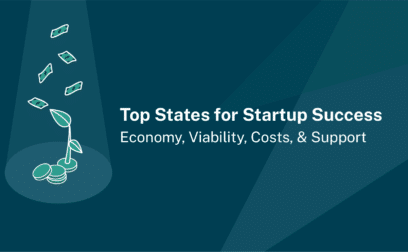TABLE OF CONTENTS
Wisconsin is a good place to start or grow a small business, especially thanks to the many funding options available there.
Learn more about available financing options, including small business loans in Wisconsin as well as alternative options.
In Wisconsin, small business owners have access to various types of loans to meet their financial needs. Some common types of small business loans available in Wisconsin include:
Every business loan will include a lump sum of money that you can use for business purposes and repay over time with interest. Some loan programs will dictate how you can use the funds, such as equipment loans and SBA loans. Different lenders will have different requirements, including minimum qualifications as well as fees or collateral. The type of loan you choose will depend on why you need the money, how much money you need and your business’s qualifications.
Business grants are a popular way to get money for your business that you don’t have to pay back. Grants are available from a variety of sources such as government agencies, economic development groups, community or nonprofit organizations and business incubators. These programs are often highly competitive so it’s important to research each grant and tailor your application to make your small business stand out.
Start by exploring government resources like the Wisconsin Economic Development Corporation (WEDC) and the Small Business Administration (SBA). These organizations often provide information about available grants and eligibility criteria. Tap into local chambers of commerce, economic development agencies and business associations in Wisconsin to find insights into regional grants and other funding opportunities. Use your network with local business owners and expand your reach by attending industry events to find valuable leads on potential grant opportunities.
Staying organized is crucial for winning any grant. It’s a good idea to create a spreadsheet or find another way to track important information like deadlines, application processes and criteria. Keep an eye on official websites, newsletters and announcements from government agencies and private organiations to stay informed about new grant programs or changes to existing ones.
While every lender and loan program will have specific requirements and application processes, you can expect to follow these key steps when applying for a small business loan in Wisconsin:
Small business loans aren’t the right choice for every business, but there are many other options available.
Always carefully consider the interest rates, fees and terms of any funding option to make sure you can afford it and that the funding will suit your business needs.
Your personal credit score is one of the most prominent ways that a lender will determine your eligibility for a loan, and each lender will have its own criteria. In general, you can expect to qualify for a traditional loan with a credit score of 680 or higher. A higher credit score (above 740) also usually opens the door to lower interest rates and longer repayment terms.
For loans backed by the SBA, it’s recommended that the borrower have a credit score between 620-680 or higher. Most SBA loan programs also require a down payment, collateral and/or personal guarantee to secure the loan.
Online or alternative lenders tend to have the most flexible credit requirements and may accept borrowers with credit scores as low as 580 or not require a credit check at all. However, these loans will often have higher interest rates – sometimes as high as 99%! – and much shorter repayment terms, which can make them very expensive for small businesses.
Equipment loans tend to have less stringent credit requirements because the equipment is used as collateral. Most borrowers will be approved for an equipment loan with a credit score of 550 or higher.
If you have a lower credit score, the lender may consider other factors like your annual revenue, business cash flow or business plan, so don’t count yourself out. You can always work on your credit score and use alternative financing options until you’re ready to apply for a loan.
Interest rates for business loans will vary depending on several factors, including:
On average, traditional business bank loans fall between 7-9% currently. Online loans have a much broader range, typically from 9-75%. The interest rate for SBA loans is tied to the U.S. Prime Rate and currently ranges between 13.5-16.5% for fixed-rate loans and 11.5-15% for variable-rate loans.
Always compare rates between lenders and loan programs to make sure you get the best possible interest rate for your business loan. Remember to include other terms of the loan such as repayment dates, fees, down payments or collateral, as these can impact the overall cost of the loan.
The timeline to receive funds for a business loan varies depending on the type of the loan, the lender’s application and underwriting processes and how complete the loan application was. It’s a good idea to research funding times before you apply to make sure the timelines match your needs for business financing.
Traditional bank loans often have a longer processing time due to more thorough review and underwriting processes, and you can expect it take several weeks to a few months from application to funding.
SBA loans often have even longer processing times due to additional steps involved in government approval. It can take as much as six months for an SBA loan to distribute funds to your account.
Alternative loans and online loans often boast quick application times and funding times, sometimes distributing funds in as little as a week or even a couple of business days after you apply. This can be a great solution for small businesses that need funding fast and can afford a higher interest rate or shorter repayment terms for the convenience.
Getting the right funding for your business in Wisconsin can help your business thrive, but the process can be overwhelming. Approaching financing with strategy and determination can help increase your chances of finding the funding you need.
Start by assessing your business’s financial needs and outlining in detail why you need the funds. Research different funding options like traditional banks, credit unions, online lenders and other options. Compare interest rates, loan terms and eligibility criteria among lenders, loan programs and alternative financing options.
Leverage your network for guidance on finding the right financing. Financial professionals, business accountants and business advisors can provide insights based on your business’s unique situation. Explore local resources like economic development organizations, small business support centers and chambers of commerce, which may offer information on funding opportunities specifically for businesses in Wisconsin.
Lastly, remember to make sure you understand the terms and conditions of any funding option, from interest rates to fees and repayment timelines, before you make a decision.
Find the right funding for your small business in Wisconsin with Swoop. We have a wide range of funding options to boost your business, whether you’re just starting out or want to expand. Get started today.
Daire made it happen! There is no doubt that Swoop sped up the process and found lenders that worked to our time scale rather than the other way round
Hocque Figureoa
Joint owner, F45 Virginia
Swoop was actually very helpful in helping us get our initial fundraising in place. Swoop was able to connect us with investors, with grant financing options and debt financing options.
Viler Lika
Founder, SingleKey
Pedja was amazing. Super supportive, understanding of our needs and wasn't pushy at all. We've been going back and forth with Swoop for over a year inquiring about different financing options and they were patient until we were ready!
Chris Skeates
F45 Multi-studio owner
Join the 95,000+ businesses just like yours getting the Swoop newsletter.
Free. No spam. Opt out whenever you like.
Kingfisher Way, Silverlink Business Park, Newcastle upon Tyne, NE28 9NX, UK
View in Google Maps35 Bull Street, Lewis Building, Birmingham B4 6AF, UK
View in Google MapsAberystwyth Innovation and Enterprise Campus
Gogerddan Campus
Aberystwyth University
Ceredigion
SY23 3EE
Dogpatch Labs, The CHQ Building, Custom House Quay, Dublin, Ireland
View in Google MapsSuite 801, Level 8, 84 Pitt Street, Sydney, NSW 2000, Australia
View in Google Maps43 W 23rd St, New York, NY 10010, United States
View in Google Maps21 Dreyer Street, Cape Town, South Africa, 7708
View in Google MapsClever finance tips and the latest news
Delivered to your inbox monthly
Join the 95,000+ businesses just like yours getting the Swoop newsletter. Free. No spam. Opt out whenever you like.




